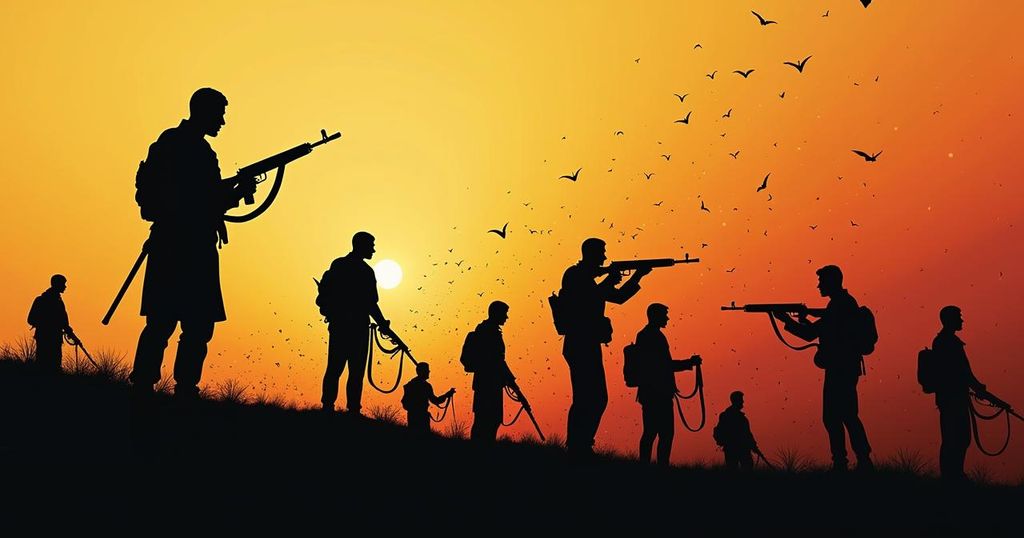Understanding the Israel-Hezbollah-Hamas-Iran Conflict in the Global Context
This analysis delineates the current Israeli-Hezbollah-Hamas-Iran conflict within a framework of evolving geopolitical dynamics that replace the Cold War paradigms. It highlights the tug-of-war between a U.S.-led coalition promoting inclusion and democracy against authoritarian regimes resisting such frameworks, with pivotal implications for nations like Iran, Russia, and North Korea. The ongoing conflicts in Ukraine and the Middle East exemplify this ideological battle, shaping global relations and potential future alliances.
To comprehend the significance of Israel’s recent military actions against Hezbollah and the potential implications for Iran and other global powers such as Russia, North Korea, and China, it is necessary to contextualize these events within a broader revision of international relations in the post-Cold War era. Following the Hamas assault on Israel on October 7, it became evident that we have transitioned into a new geopolitical phase, which I refer to as the post-post-Cold War. This phase is characterized by a dichotomy between a so-called ‘coalition of inclusion’—which comprises nations, not exclusively democratic, advocating for a future shaped by U.S.-led initiatives aimed at fostering economic integration and collaboration against worldwide challenges, including climate change—and a ‘coalition of resistance’ composed of authoritarian regimes such as Russia, Iran, and North Korea. These regimes utilize their opposition to the U.S.-led coalition as a means to legitimize their militaristic societies and authoritarian governance. China finds itself in a unique position, attempting to navigate between these camps; while the Chinese economy is reliant on engagement with the coalition of inclusion, its leadership shares many of the authoritarian tendencies characteristic of the coalition of resistance. The ongoing conflicts in Ukraine, Gaza, and Lebanon must be viewed through this lens of global ideological struggle. Ukraine’s endeavor to integrate into the European community—seeking liberation from Russian dominance to join the European Union—parallels Israel and Saudi Arabia’s attempts to cultivate relations that further the coalition of inclusion in the Middle East. In response, Russia has sought to thwart Ukraine’s Westward aspirations, while Iran, Hamas, and Hezbollah have aimed to derail Israel’s potential normalization of relations with Saudi Arabia. The ramifications of Ukraine successfully joining the European Union are profound, as it would signify a near-complete realization of a united and free Europe, thereby isolating Vladimir Putin’s authoritarian regime. Equally, should Israel succeed in establishing ties with Saudi Arabia, it would significantly bolster the coalition of inclusion in the Middle East, leaving Iran and its proxies—Hezbollah in Lebanon, the Houthis in Yemen, and various pro-Iranian militias in Iraq—in a precarious position, further destabilizing their regimes and leading their nations closer to failure.
The Israeli-Hezbollah-Hamas-Iran conflict is emblematic of a shift in global geopolitics that reflects a reorganization of alliances and ideological battles in the wake of the Cold War. Since the late 20th century, the international landscape has been dominated by a struggle wherein countries align either with the U.S.-led coalition advocating for democracy, economic integration, and global cooperation, or with authoritarian regimes that resist such trends. The rise of terrorist organizations and regional conflicts, particularly in the Middle East, is framed within the larger context of how nations perceive their sovereignty and security. The ongoing conflict serves as a microcosm of broader trends affecting global stability and power dynamics between authoritarian and democratic regimes.
In summary, the escalating tensions and conflicts involving Israel, Hezbollah, Hamas, and Iran should be viewed as part of a larger narrative concerning the fight between inclusivity and authoritarianism in global politics. The outcomes of these conflicts have vast implications not only for regional stability but also for the legitimacy and future of authoritarian regimes that depend on isolationist and militaristic narratives to maintain their power. As Israel strengthens its position with potential normalizations in the Middle East, it simultaneously poses existential threats to the repressive structures of governance in nations like Iran. Thus, understanding this struggle aids in clarifying the complexities of contemporary international relations.
Original Source: www.nytimes.com




Post Comment